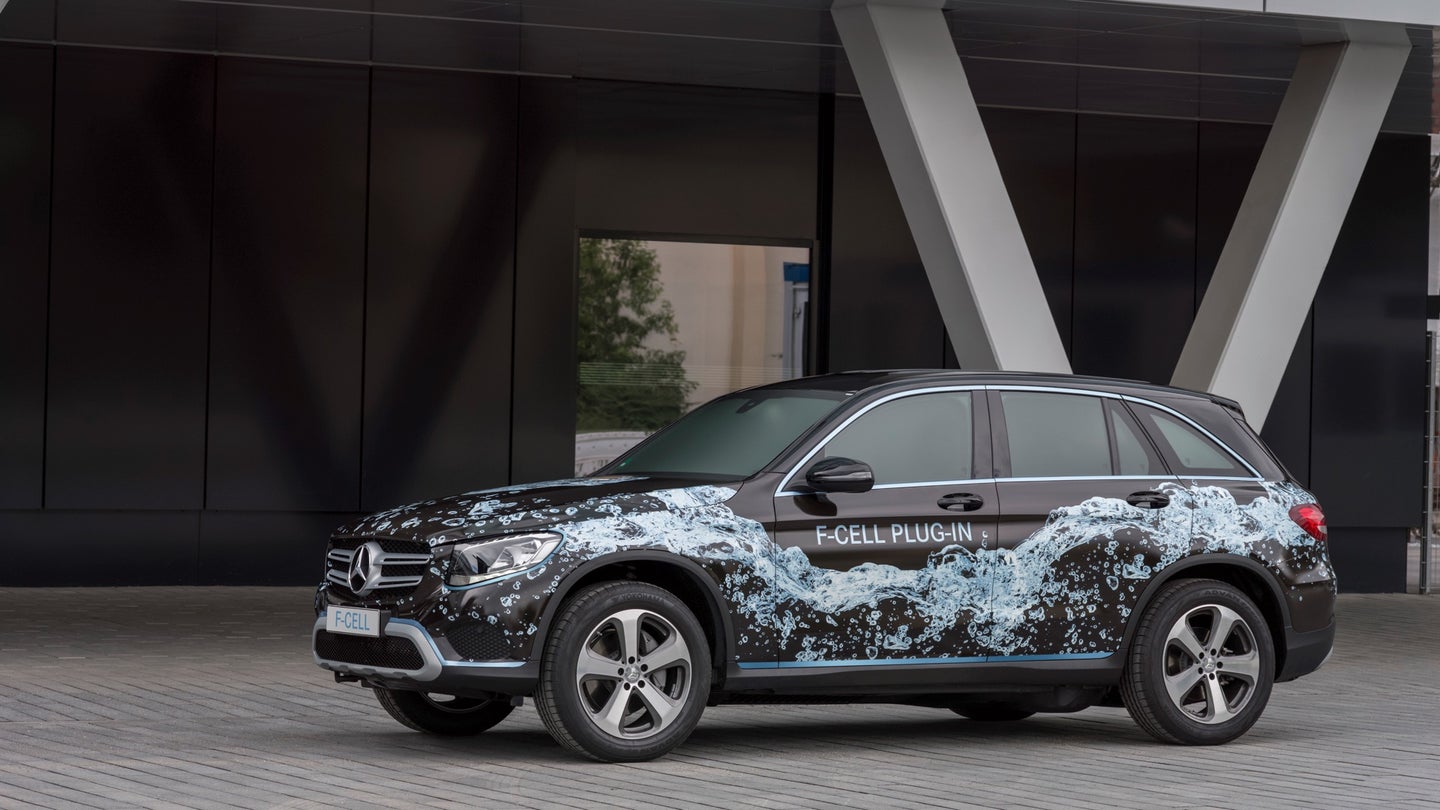Daimler May Scale Back Its Hydrogen Fuel Cell Plans
When it comes to zero-emission vehicles, Daimler may switch its focus from hydrogen fuel cells to batteries.

Mercedes-Benz parent Daimler was one of the early champions of hydrogen fuel-cell vehicles. In 2010, it released a limited run of Mercedes B-Class F-Cell prototypes to test the technology, and more recently it committed to building a production fuel-cell car, the GLC F-Cell. But declining battery costs have Daimler rethinking its position. At a recent automotive conference in Germany, CEO Dieter Zetsche said the automaker would no longer put as much emphasis on fuel cells, according to Smart2.0. This comes after Daimler's announcement that it will launch a new electric car sub-brand for Mercedes, called EQ, with at least 10 models.
"Battery costs are declining rapidly whereas hydrogen production remains very costly," Zetsche said. Fuel-cell cars have been touted for their longer ranges, which are comparable to those of gasoline cars. But lower battery costs could allow automakers to put larger battery packs in their electric cars, increasing range. It also lowers the cost of the cars themselves.
Zetsche said Mercedes still plans to build the GLC F-Cell, but only in limited numbers, and primarily for the benefit of fleet operators. The F-Cell is a fuel-cell version of the GLC-Class crossover, with a claimed range of 310 miles. Interestingly, it features a backup lithium-ion battery pack good for about 30 miles of range on its own.
Daimler's decision to scale back fuel-cell plans follows Toyota's announcement that it will build a battery-electric car alongside its Mirai fuel-cell sedan. Toyota was one of the biggest boosters of fuel cells, and previously claimed batteries were impractical. But issues like the lack of hydrogen fueling stations have hindered the rollout of fuel-cell cars, while battery-powered cars continue to grow steadily in popularity.
